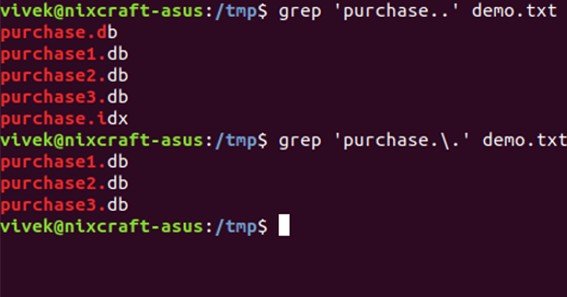The grep command is a powerful tool for searching text patterns within files or streams in Unix-like operating systems. However, users may experience delays when using grep in combination with the wait command or within scripts that involve process synchronization. Understanding the underlying causes of these delays is essential for optimizing performance and ensuring efficient script execution.
Input Handling and Buffering in grep
One primary reason for delays when using grep with wait involves how grep handles input and buffering. By default, grep reads input in chunks to enhance performance. If the input is being piped from another process that produces data slowly or intermittently, grep may wait until it has received enough data to fill its buffer before processing and outputting results. This behavior can lead to noticeable delays, especially when dealing with real-time data streams.
To mitigate this issue, you can use the --line-buffered option with grep, which forces it to output lines as soon as they are read:Stack Overflow
This approach reduces latency by ensuring that grep processes and outputs each line immediately upon receipt. However, be aware that using line buffering may slightly decrease performance due to the increased number of input/output operations.
Interaction Between grep and wait
The wait command in Unix-like systems is used to pause script execution until specified background processes have completed. When grep is used in a script alongside background processes managed by wait, delays can occur if grep is waiting for input from a process that has not yet completed or is producing output slowly.
For example, consider the following script:
In this scenario, grep attempts to search output_file before long_running_process has finished executing and producing the expected output. As a result, grep may not find the desired pattern, or it may experience delays waiting for the file to be populated.
To address this, ensure that grep operates on data only after the producing process has completed:
By placing wait before the grep command, you ensure that grep executes only after long_running_process has finished, thereby preventing unnecessary delays.
Performance Optimization Techniques
To further optimize the performance of grep in scenarios involving wait and inter-process communication, consider the following strategies:
-
Use Efficient Data Streams: Ensure that the processes feeding data into
grepproduce output promptly and efficiently. Delays in the data-producing process directly impactgrep‘s performance. -
Optimize Regular Expressions: Complex or inefficient regular expressions can slow down
grep‘s processing time. Simplify patterns where possible to enhance performance. -
Adjust Buffering Strategies: Depending on the use case, adjusting buffering strategies (e.g., using
--line-buffered) can help balance the trade-off between latency and throughput. -
Monitor System Resources: High system load or resource contention can affect the performance of both
grepand the processes it interacts with. Use monitoring tools to identify and mitigate resource bottlenecks.
Conclusion
Delays in grep when used with the wait command often stem from input handling and process synchronization issues. By understanding how grep processes input and implementing appropriate buffering and synchronization strategies, you can minimize these delays and optimize the performance of your scripts.
FAQ
1. Why does grep delay output when processing piped data?
By default, grep reads input in chunks to improve performance. When processing piped data, it may wait for its buffer to fill before outputting results, leading to delays. Using the --line-buffered option forces grep to output lines immediately as they are read.
2. How does the wait command affect grep in a script?
The wait command pauses script execution until specified background processes complete. If grep is executed before a background process finishes producing data, it may experience delays or miss expected input. Ensuring grep runs after relevant processes have completed can prevent this issue.
3. Can complex regular expressions cause grep to run slowly?
Yes, complex or inefficient regular expressions can significantly impact grep‘s performance. Simplifying patterns and avoiding unnecessary complexity can enhance processing speed.
4. What are some alternatives to grep for faster text searching?
Tools like ack, ag (The Silver Searcher), and rg (ripgrep) are designed for faster searching with more features than grep. They are optimized for speed and can handle large codebases efficiently.
5. How can I monitor grep‘s performance in real-time?
Utilizing system monitoring tools like top, htop, or strace can help observe grep‘s resource usage and identify potential bottlenecks during execution.










